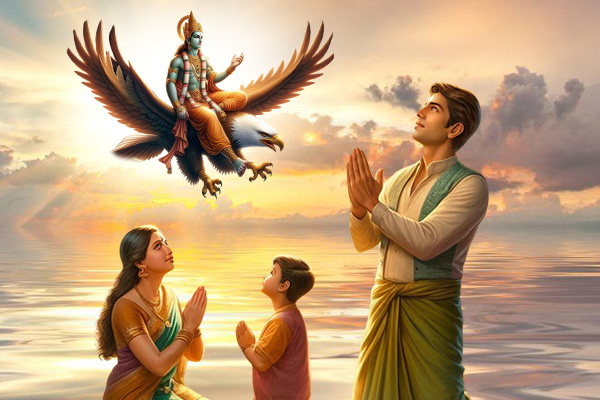
The Ekadashi which falls on the 11th. day of the Krishna Paksha (waning Moon phase) in the Hindu month of Ashwin, which is September- October. Indira Ekadashi is also called 'Ekadashi Shradh' as it falls in the “ Pitra Paksha ” and is an important Ekadashi, which gives the opportunity to devotees to observe Indira Ekadashi Vrat/fast and relieve transcended souls of ancestors from sins, so that they can move ahead to the spiritual realm.
Indira Ekadashi Presiding Deity
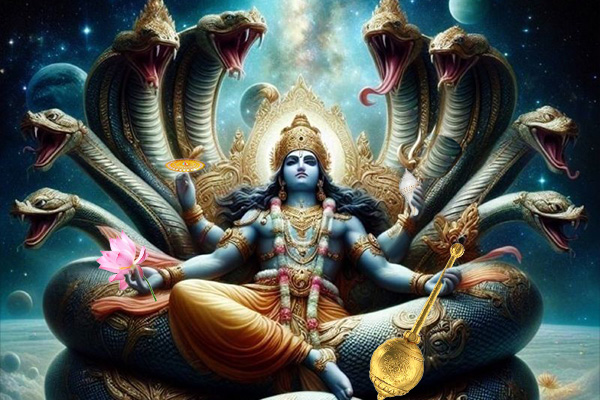
The presiding deity of Indira Ekadashi is Shri Padmanabha, a form of Bhagwan Vishnu. The Padmanabha form of Vishnu depicts him lying on the Anant Shaiyya, with the Padma or Lotus arising from his Nabhi(navel), and Brahma sits on the Lotus. Bhagwan Vishnu is the protector and preserver of the Universe. Indira Ekadashi Vrat is observed to please Padmanabha (Vishnu) as Ekadashi is favorite of Shri.
Indira Ekadashi Tithi & Muhurat (Date & Time)
Indira Ekadashi on Tuesday, October 6, 2026
On 7 th Oct, Parana Time - 07:11 AM to 09:26 AM
On Parana Day Dwadashi End Moment - 06:46 PM
Ekadashi Tithi Begins - 09:37 PM on Oct 05, 2026
Ekadashi Tithi Ends - 08:04 PM on Oct 06, 2026
What To Do on Indira Ekadashi (Puja Vidhi)
- On the morning of Ekadashi, take a bath early in the morning. The devotee should be intent on keeping the fast with sincerity.
- Worship Lord Padmanabha/Vishnu with dedication.
- Offer Bog, flowers, etc. to Him at home.

- Worship the Shaligram Shila , if you have one at home.
- Light a Ghee Lamp in honor of Bhagwan Vishnu.
- On Indira Ekadashi, remain in a spiritual mode.
- Chant Mantras and praises of Bhagwan Vishnu, sing Bhajans, through the day.
- Visit Bhagwan Vishnu/Krishna Mandir on Ekadashi on this day, spend some time there chanting and praying.
- Invite Brahmanas and feed them to a satisfying meal and offer them Dakshina and other charity.
- Donating to the needy is considered virtuous on Ekadashi.
- Stay awake through the night of Ekadashi, in full consciousness.
- Play Bhajan for Vishnu/Shridhar, through the night if possible. If the devotee falls asleep on Ekadashi night, then the Vrat is considered incomplete.
You can read or recite Vishnu Sahasranama (A thousand names of Vishnu). You can watch the video below
It is the best time for Havan, rituals and fasting. At least one of them must be performed to please Vishnu if possible.
It is the best time to wear Rudraksha beads ruled by Narayana. A Ten Mukhi Rudraksha bead ruled by Bhagwan Krishna and a Nineteen Mukhi Rudraksha bead ruled by Shri Narayana is best to energize your devotional mood.
NOTE: For professional and devoted Puja services you may reach out to Rudra Centre. We have 250+ qualified “Karmakandi” Pandits from Kashi specially curated by Sakhashree Neeta.
Why do we celebrate Indira Ekadashi?
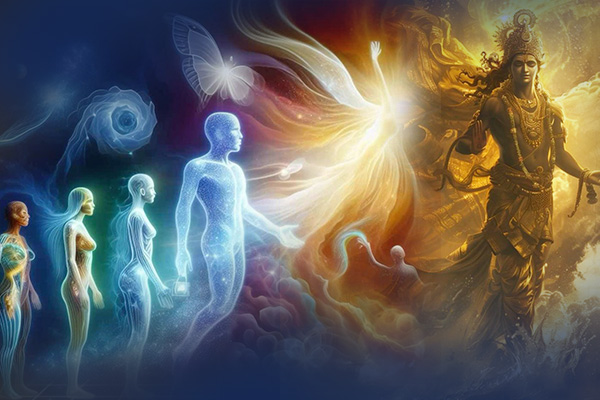
The Hindu faith mostly observes Indira Ekadashi as a holy day for fasting and worship of Vishnu. This auspicious day is said to provide great spiritual advantages; it falls on the Ekadashi, the eleventh day of the Krishna Paksha, the waning moon phase in the Ashwin month. The Hindu belief that fasting on Indira Ekadashi will assist the souls' path to Moksha (liberation) after death is central to Hindu mythology. Fasting, religious rites, and devotional singing and recitations honoring Bhagwan Vishnu are all part of the celebration. The purpose of celebrating Indira Ekadashi is twofold: first, to enhance family ties and respect ancestral customs; second, to seek personal spiritual progress and the eradication of sins.
How do we celebrate Indira Ekadashi?
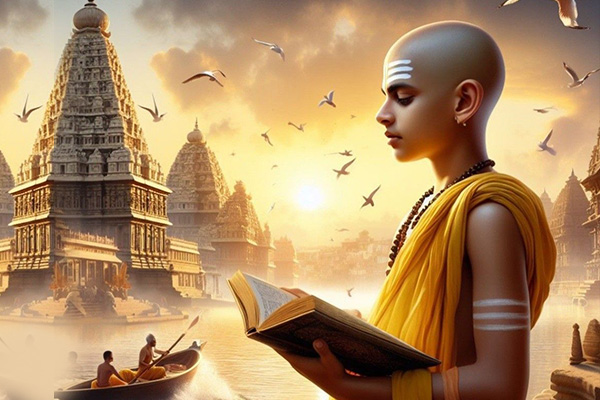
Fasting, prayers, and devotion to Lord Vishnu are the hallmarks of the Indira Ekadashi celebration. First thing in the morning, devotees change into clean or new clothing and take a cleansing bath. Some choose to fast completely, eating nothing but water and fruits, while others adhere to a more relaxed fast that allows them to eat just specific grains, beans, and vegetables. Daily devotions include reading holy books like the Bhagavad Gita, reciting the Vishnu Sahasranama, and chanting mantras. Devotees go to temples or build altars at home to conduct special pujas and sacrifices for Bhagwan Vishnu. Furthermore, it is customary to pray for the release and tranquilly of the spirits of ancestors who have passed on. After the morning rites and sacrifices to Bhagwan Vishnu are completed on the next day, Dwadashi, the fast is traditionally broken. Devotees seek the remission of sins, physical and mental cleansing, and the spiritual welfare of their ancestors via these rituals.
Indira Ekadashi Mantra:
1. Om Namo Bhagvate Vasudevaye..!!
2. Shri Krishna Govind Hare Murari Hey Nath Narayan Vasudeva...!!
3. Ram Ram Rameti Rame Raame Manorame Sahastranaam Tatulyam Ram Naam Varanane..!!
Indira Ekadashi Puja Benefits
.jpg)
The Puja of Lord Padmanabha (Vishnu) on Indira Ekadashi blesses the devotee and family with good health, prosperity, wealth, righteous living, spiritual progress, happy family, contentment, worldly comforts, joy, protection and abundance.
Shri Padmanabha relieves ancestors of their sins and blesses the souls to rise to the spiritual realm or get Moksha.
The devotee overcomes miseries, debts and strife and leads a happy life.
Indira Ekadashi Vrat Vidhi (Fasting Rules)
.jpg)
The fasting procedure for Indira Ekadashi was described by Narad Muni in the Brahmavaivarta Purana. The rituals of Indira Ekadashi start a day prior to Ekadashi, which is Dashami, by performing Shradh ritual for the Pitra or ancestors. The devotees should have only one meal on Dashami.
Indira Ekadashi Vrat starts on the morning of Ekadashi and the Sankalp(intension) of observing the Vrat(fast) should be taken after having bath early in the morning.
The devotee should specify whether he/she is keeping partial or complete Vrat/fast.
Invoke and worship Padmanabha/Vishnu.
The best fasting is dry fasting, Nirjala Vrat, which means, fasting without drinking water and food. One can observe partial fast by drinking water and abstaining from food.
However, devotees should be aware of what their body and health and fast accordingly. Fruit and Milk diet is also a common way to observe fast on this day.
Beans and grains are prohibited to eat on Ekadashi for devotees who are fasting by eating one meal on Ekadashi. Non vegetarian food, onion, garlic is strictly not allowed on Ekadashi and Dwadashi.
As it falls in the Pitra Paksha day, food is offered to priests and cows, before eating.
On this day, special rituals and prayers are performed in the memory of the dead ancestors. The afternoon time is favorable for praying to the forefathers.
Parana for Indira Ekadashi:
The fast must be broken after sunrise the next day of Ekadashi.
Note that one should break the fast (Parana) within Dwadashi Tithi.
Another important consideration is that one must not break the fast-during Hari Vasara which is the fourth duration of Dwadashi. The best time to break the fast is Pratah Kala (early morning).
Indira Ekadashi Vrat Katha - Traditional Story of The Fast:
The legend of Indira Ekadashi Vrat or Vrat Katha is about the powerful King Indrasena of Mahishmatipura. King Indrasena was a devotee of Bhagwan Vishnu and an efficient ruler, who took good care of His subjects. Once the great wise devotee of Vishnu, Narad Muni, visited King Indrasena to deliver a message to the King from his father. After the King paid his respect to Narad Muni, washed His feet, offered food to Him etc., the King asked Narad Muni if there was any special reason for the great Sage to visit him in person from Brahmaloka.
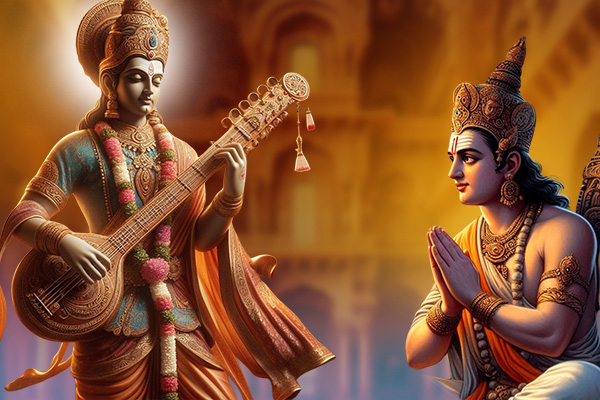
Narad Muni told the king Indrasena that he had visited the Yamaloka where he happened to meet the king's father, who was in a state of suffering in Hell, as a punishment for a sin he had committed, as he had prematurely broken one Ekadashi fast.
Narad Muni also tells the King that his father has sent a message to him, to observe the Indira Ekadashi Vrat sincerely and offer enough donations which will help his soul to ascend to heaven. King Indrasena's father had also cautioned his son to be very aware and never commit a sin like the one he had.
Narad Muni informed the King that he had come to deliver the message from his father and tell him to help his father ascend to the spiritual realm.
King Indrasena then respectfully asked Narad Muni to guide him on how to observe the Indira Ekadashi fast, the Vrat Vidhi etc. After telling the King about Indira Ekadashi Vrat and Puja Vidhi, Narad Muni went back to Brahmaloka.
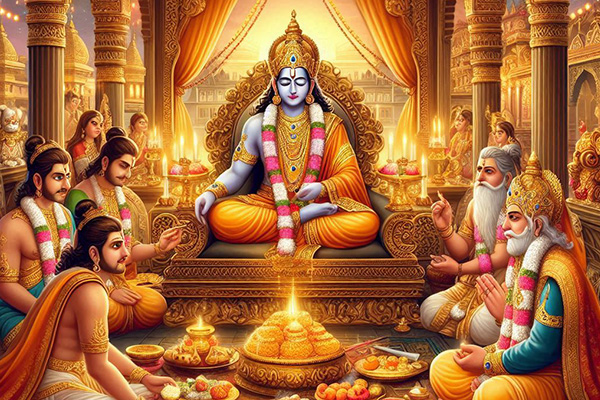
King Indrasena followed the rules perfectly and observed the Indira Ekadashi Vrat. The Indira Ekadashi Vrat Katha narrates that when King Indrasena broke his fast along with his family, relatives and subjects, flowers were showered from Heaven. King Indrasena got a vision of his father elevating to Shri Vishnu's abode, Vaikuntha.
Sleeping during the day or night during Ekadashi Vrat is prohibited. The devotees should chant/ sing praises of Lord Vishnu/Krishna, read the Bhagawat Geeta and other holy books through the day and night.
Reading the Indira Ekadashi Vrat Katha or hearing it is a must on this pious day.
Indulging in gossiping, talking/thinking ill of others or self, does not give the desired outcome of the Ekadashi Vrat.
Abstinence from alcohol, drugs, tobacco, other addictions, sex on Ekadashi and Dwadashi must be observed.
Maintain calmness, avoid anger/aggression for the best outcome of observing the Indira Vrat.
Distribute the Prasad to family members and as many people as possible on Dwadashi.
Devotees who observe fast should not eat food in other people's house on the day after Ekadashi.
The next morning, on Dwadashi, give charity to Brahmanas respectfully ask them for forgiveness for any offence. Donating to the needy is also advised which garners Lord Vishnu's blessings.
For people who observe Indira Vrat, when breaking the fast, one should say the prayer - 'O Pundarikaksha, O lotus-eyed Lord, now I will eat. Please shelter me'.
After the prayer the devotee should offer flowers and water at the lotus feet of Lord Vishnu and request the Lord to eat by chanting the mantra of eight-syllable, thrice: Om Namah Narayanaya.
To garner the full merits of the fast, the devotee should have water which has been offered to the Lord.
On Dwadashi only one meal should be eaten, and Honey and Urad-dal (black lentil) is not to be consumed.
For devotees observing fast, if due to some unavoidable reason they are not able to break the fast on Dwadashi during Prana time, then drinking water to signify breaking of fast is advised. Later food can be eaten as per convenience.
Indira Ekadashi Vrat (Fast) Significance:
-Significance.jpg)
Observing Ekadashi Vrat(fast) is a significant religious practice followed by Hindus since ancient times for the merits it brings.
The Indira Ekadashi Vrat is an important Vrat to observe as it liberates the souls of ancestors from being stuck in lower realms or Yamaloka, helps to remove their sins and is believed to help them to ascend to the Heavenly realm.
As Indira Ekadashi falls during the Pitra Paksha, observing this Vrat brings blessings of ancestors, which is very important for a happy and successful life for the lineage.
The devotee observing the Indira Ekadashi Vrath is delivered from his/her sins.
A devotee who follows all the Vrat Vidhi(rules) perfectly while observing the fast is said to gain the fruits of taking bath in the holy rivers like Ganges and other holy rivers and performing the Ashwamedha Yanjna.
The Indira Ekadashi Vrat is one of the best ways to garner the blessings of Bhagwan Vishnu or Padmanabha.
Indira Ekadashi “Daan” (Donation)
.jpg)
Donation on Apara Ekadashi is considered highly auspicious and commendable. Here are some suggested items to donate on this sacred day:
Food items:
- Rice, wheat, and other grains.
- Fruits and vegetables.
- Cooked meals to the needy and hungry.
Click Here to Book Food Donation (Ann Daan)
Clothing:
- New clothes for the poor and underprivileged.
- Warm clothes, blankets, and shawls, especially in cold areas or winter seasons.
Click Here to Book Clothes Donation (Vastra Daan)
Money and benefaction:
- Financial donations to temples, charitable organisations, or directly to those in need.
- Supporting the education of underprivileged children by donating to schools or educational charities.
Religious Items:
- Books on spirituality and religious scriptures.
- Items used in worship like incense sticks, diyas (lamps).
Shelter and Support:
- Donating to shelters for the homeless or animal shelters.
- Contributing to the construction of schools, hospitals, and community centres.
Cows and Animal Care:
- Donating to goshala (cow shelters) or animal welfare organisations.
- Providing food & fodder and other essentials for animals.
.jpg)
Click Here to Book Cow Donation (Gau Daan)
While making donations, it's important to do so with a pure heart and the intent to help and uplift others. This selfless act of charity not only benefits the recipients but also brings spiritual merit to the donor. Observing these practices on Indira Ekadashi is believed to cleanse one's soul, remove past sins, and attract divine blessings.


-in-Astrology.jpg)
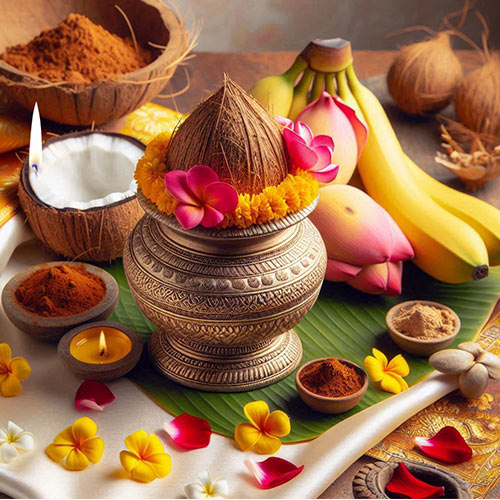
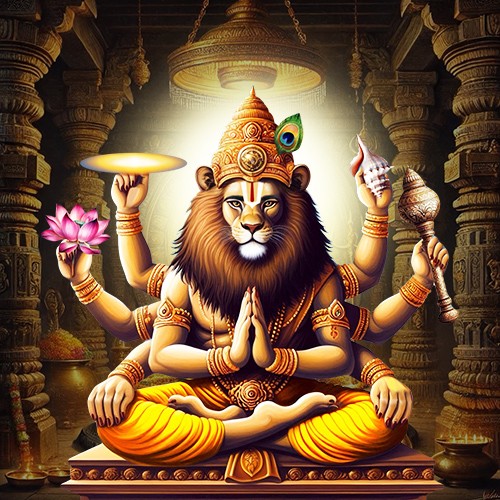
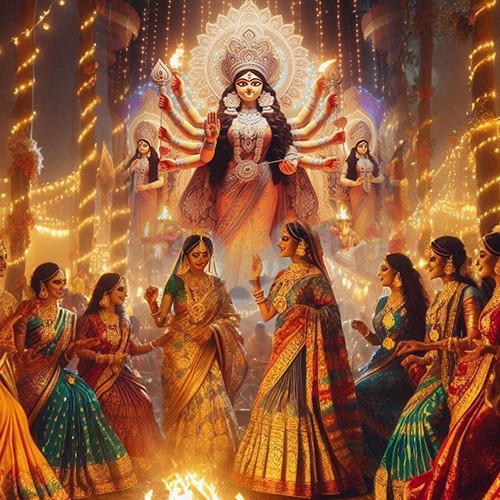
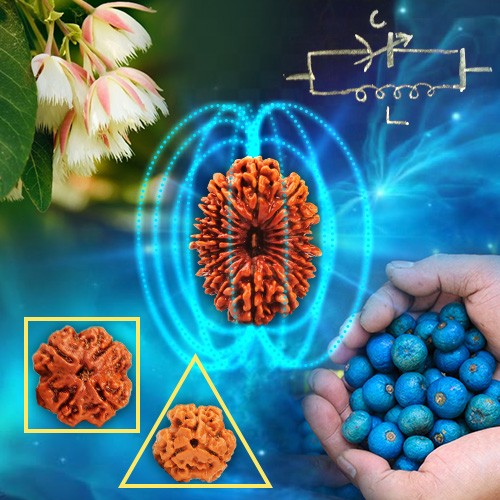

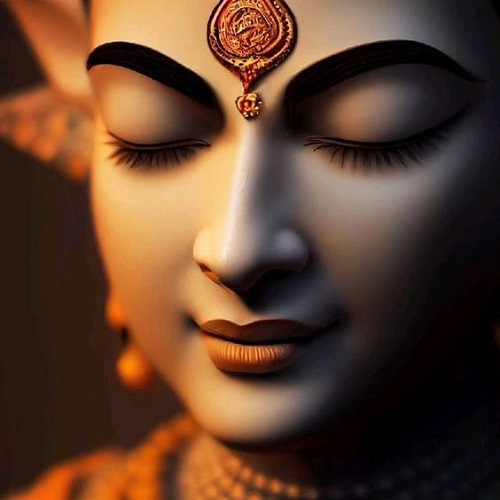
.jpg)
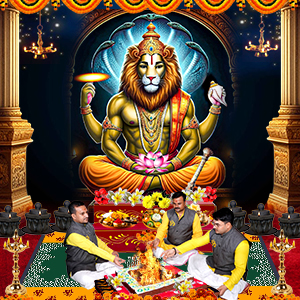
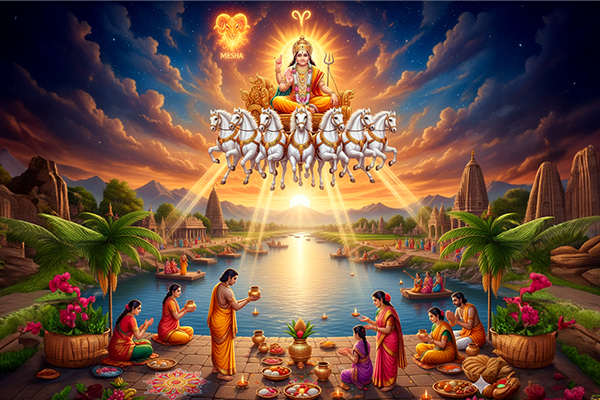
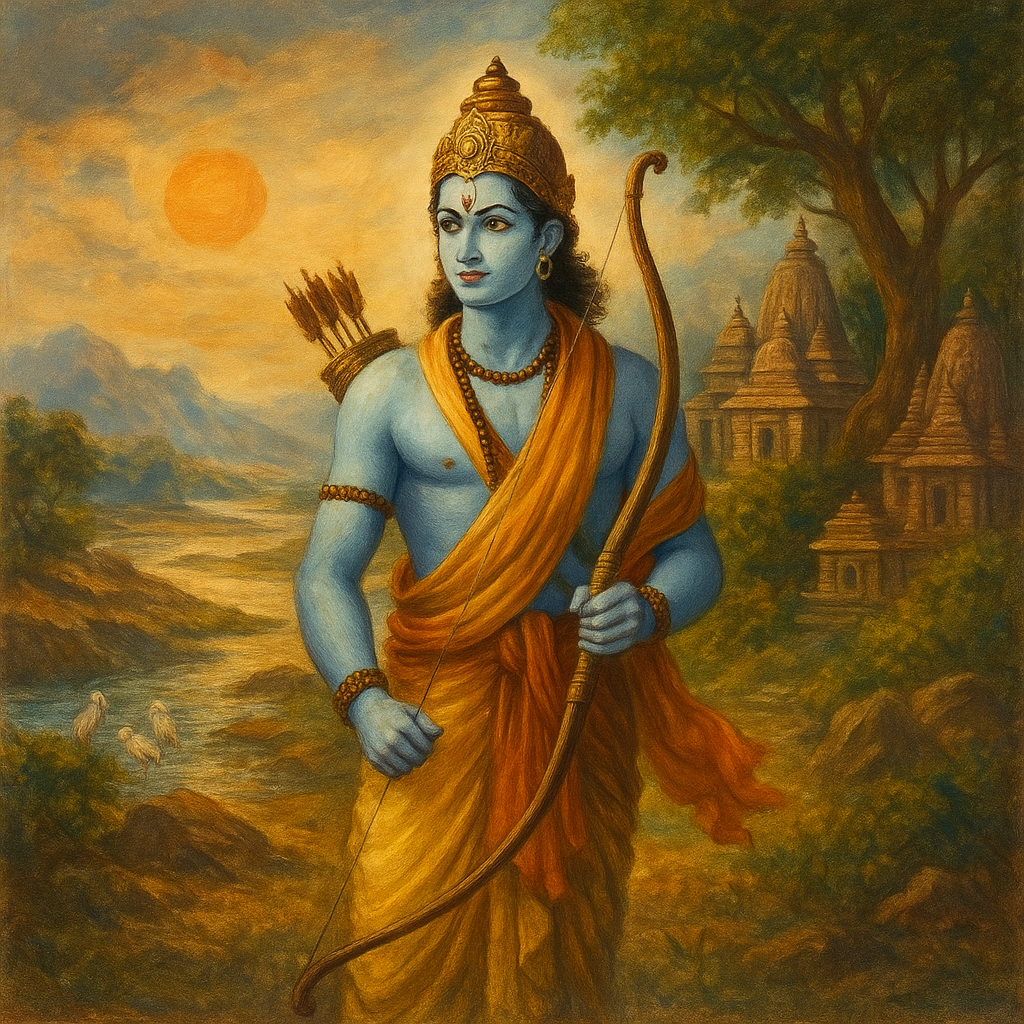
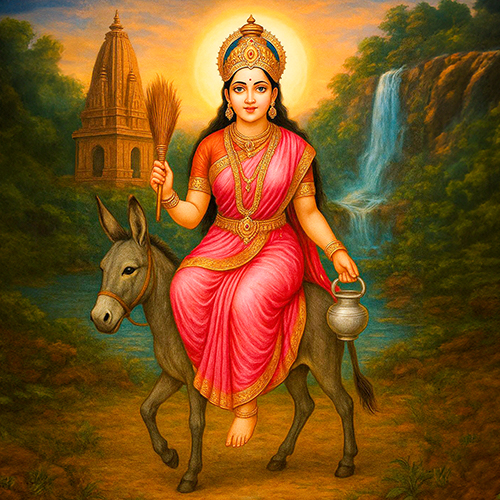
Comments 0
Leave your thought here